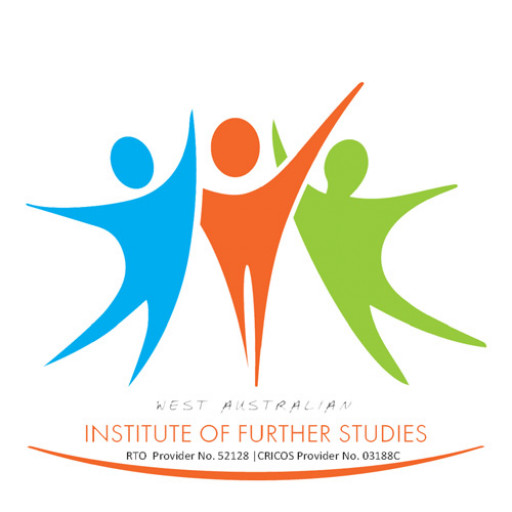The Bachelor of Arts in Local, Family and Applied History at the University of New England offers students a comprehensive and engaging exploration of historical developments relating to local communities, family histories, and practical applications of historical knowledge. Designed for those passionate about understanding the social, cultural, and political contexts that have shaped regional and familial histories, this program provides a multidisciplinary approach that combines traditional historical methods with applied skills relevant to contemporary society. Students will examine a diverse range of topics, including the history of specific communities, family genealogies, heritage conservation, and the application of history in policy development and community engagement. The curriculum emphasizes critical thinking, research proficiency, and effective communication, enabling graduates to interpret historical sources, analyze complex issues, and contribute meaningfully to issues surrounding community identity, heritage protection, and local history initiatives. Through a combination of lectures, seminars, research projects, and practical placements, students will develop a deep understanding of the unique historical narratives that influence present-day society. The program also promotes the use of digital technologies in historical research, ensuring students are well-equipped for careers in heritage management, local government, education, museums, archives, and community advocacy. With strong links to local historical societies and heritage organizations, students have opportunities for internships and collaborative projects that enhance their practical experience. Graduates of this program will possess a solid foundation in historical methodology, a nuanced appreciation for family and local histories, and the skills necessary to apply their knowledge in a range of professional contexts that support cultural preservation and community development. This innovative program aims to foster a profound respect for historical diversity while equipping students to become informed and responsible professionals dedicated to understanding and preserving the rich history of their communities.
University of New England offers a comprehensive program in Local, Family and Applied History designed to equip students with the skills and knowledge necessary to explore the rich histories of communities, families, and everyday life. This program emphasizes the importance of understanding local histories within broader regional, national, and global contexts, fostering a deep appreciation for the diverse narratives that shape our societies. Students will engage with a wide range of topics, including community development, family traditions, social change, and applied history methodologies, preparing them for careers in heritage management, community development, education, and historical consultancy.
Throughout the program, students will learn to develop research strategies tailored to local histories, including archival research, oral history collection, and spatial analysis. The curriculum integrates theoretical perspectives with practical applications, encouraging students to critically examine how history is constructed and used in contemporary settings. Coursework often includes case studies of local communities, projects involving collaboration with local organizations, and opportunities for fieldwork, providing hands-on experience in the field of history.
The program also emphasizes the application of historical knowledge to real-world issues, enabling students to contribute to community digitization projects, cultural heritage preservation, and public history initiatives. Students are encouraged to develop strong skills in communication, storytelling, and digital tools, which are highly valued in many professional sectors. With a focus on both academic research and practical skills, the program prepares graduates to become thoughtful historians, cultural heritage practitioners, or further their studies in postgraduate programs.
In addition to coursework, students benefit from mentoring by experienced faculty members who specialize in local and applied history, as well as opportunities to participate in internships and community engagement activities. The program aims to foster an understanding of how local histories influence contemporary identity and community wellbeing, advocating for the preservation and celebration of local narratives. Graduates of this program are well-positioned to make meaningful contributions to society by documenting and interpreting the history of communities and families, ensuring that their stories are preserved for future generations.
Program requirements for the Bachelor of Local, Family and Applied History at the University of New England include completion of core courses in historical research methods, Australian history, and specialized topics in local and family history. Students must successfully complete foundational units such as HIST100 – Introduction to History and HIST200 – Research Methods in History, which provide essential skills in historical analysis, sourcing, and interpretation. The program emphasizes experiential learning; therefore, students are encouraged to undertake internships or field research projects in local historical societies or archives to gain practical experience. To graduate, students must also complete a set of elective courses totaling at least 24 credit points, allowing for specialization in areas such as indigenous history, regional development, or family genealogy. Additionally, a capstone project or thesis is required, where students apply their research skills to a significant local or family history topic, demonstrating their ability to undertake independent scholarly work. Assessment across the program typically includes essays, exams, presentations, and project reports. The program also promotes interdisciplinary study, integrating aspects of sociology, anthropology, and cultural studies, which enhance understanding of community histories and social processes. Students are encouraged to participate in seminars, conferences, and collaborative research activities offered by the university to foster a comprehensive understanding of historical context and methodologies. In line with university policies, all students must meet the attendance requirements and demonstrate competence in digital literacy and sources analysis, essential for contemporary historical research. Upon completion, graduates are well-equipped for careers in heritage management, historical consultancy, education, and other roles requiring expertise in local and family history.
tuition_fees_and_costs: The University of New England offers a range of financing options for students enrolled in the Bachelor of Arts with a major in Local, Family, and Applied History. Tuition fees vary depending on whether the student is domestic or international. For domestic students, the annual tuition fee is approximately AUD 9,000 to AUD 11,000, with the possibility of HECS-HELP or other government assistance programs reducing the financial burden. International students typically pay higher fees, around AUD 30,000 per year, which can be paid upfront or through a flexible payment plan approved by UNE.
Scholarships and financial aid: UNE provides a variety of scholarships for undergraduate students, including those enrolled in history programs. These scholarships are awarded based on academic merit, financial need, or specific criteria related to the student's background or intended research focus. Examples include the UNE International Student Scholarship and the UNE Vice-Chancellor’s Excellence Scholarship, which can significantly offset tuition costs. Additionally, students may access government subsidies and loan schemes, such as Commonwealth Supported Places (CSP) for eligible domestic students, enabling them to defer payments through the Higher Education Loan Program (HELP).
Payment plans and financial support: UNE offers flexible payment options, allowing students to pay tuition fees upfront, per semester, or through installment plans spread across the academic year. Students are encouraged to contact the UNE Student Finance Office early to discuss personalized payment arrangements. For students facing financial hardship, UNE has support services, including emergency grants and advice on external scholarships or part-time work opportunities. Many students combine part-time employment with their studies, facilitated by UNE’s proximity to regional centers and online course offerings that allow flexible study schedules.
Additional costs: Beyond tuition, students should consider expenses related to textbooks, online materials, and research resources. The university's library and digital databases provide extensive access to historical archives, journals, and primary sources necessary for specialization in local, family, and applied history. Students undertaking research projects may also incur costs related to fieldwork, travel, or material acquisition, which are typically funded through personal means or external grants.
Financial planning resources: UNE provides dedicated financial planning resources to assist students in budgeting throughout their studies. Prospective and current students are encouraged to attend workshops or consult with financial advisors to develop sustainable financial strategies. Scholarships specific to history students or regional research projects are frequently announced and provide additional funding avenues. International students should also explore visa-related financial requirements and work limitations, which can impact earning potential during their studies.
In summary, financing studies in the Local, Family, and Applied History program at UNE involves a combination of tuition fees, scholarships, government aid, flexible payment schemes, and external funding options. The university emphasizes accessible education supported by various financial assistance programs, enabling students to pursue their academic and research aspirations with manageable financial commitments.
The University of New England offers programs in the fields of Local, Family, and Applied History, focusing on the study and interpretation of historical events, communities, and cultural practices relevant to specific regions and populations. These programs are designed to equip students with a comprehensive understanding of local histories, enabling them to analyze the social, cultural, and political developments that have shaped communities over time. The curriculum typically includes courses on regional history, community engagement, oral history methodologies, heritage conservation, and the social sciences as they pertain to historical inquiry. Students are encouraged to develop skills in critical thinking, research, and analysis, applying these skills to real-world contexts through practical projects and fieldwork. The programs aim to foster a deep appreciation for the diversity of local histories and how these histories influence contemporary societal issues. Faculty members involved in these programs often have extensive research expertise and professional experience in history, anthropology, and cultural studies, providing students with valuable mentorship and opportunities for academic and practical engagement. Graduates of the program can pursue careers in cultural heritage management, museum work, archival services, education, community development, and public history projects. The university facilities support experiential learning, including access to archives, libraries, and heritage sites, facilitating a hands-on approach to historical research and preservation. Overall, the programs in Local, Family, and Applied History at UNE provide a rigorous and contextually relevant education for students interested in understanding and contributing to the preservation of regional identities and histories, with graduates positioned to make meaningful contributions in academia, public policy, and community organizations.









